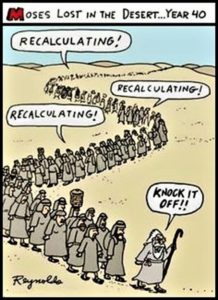
The wound is the place where the Light enters in.
-RumiThere is a crack in everything God has made.
-Ralph Waldo Emerson
Ring the bells that still can ring. Forget your perfect offering. There is a crack in everything. That’s how the light gets in.
-Leonard Cohen
To be a monk is to have time to practice for your transformation and healing. And after that to help with the transformation and healing of other people.
-Thich Nhat Hanh
Then Jesus summoned his twelve disciples and gave them authority over unclean spirits, to cast them out, and to cure every disease and every sickness.
-Matthew 10:1
Then the angel showed me the river of the water of life, bright as crystal, flowing from the throne of God and of the Lamb through the middle of the street of the city. On either side of the river is the tree of life with its twelve kinds of fruit, producing its fruit each month; and the leaves of the tree are for the healing of the nations.
-Revelation 22
Healing Prayer
I don’t know if you have this experience, but as someone who has been hanging around the church for a while, I’m continually surprised with the ways that words I’ve said over and over, hymn texts I’ve sung a million times, familiar passages of scripture come to life, striking me as if I’ve never heard them before. I confess (spiritual shallowness alert) that it can become routine. I can get bored or distracted. My mind can wander in worship. And then a phrase will come to life and grab my attention. I take that to be the enlivening work of the Holy Spirit, breathing new insight into old forms, maybe even resurrecting them.
Some of you know that in response to the current health crisis, and my own self-quarantining, I’m leading online Morning Prayer on weekday mornings (You’re welcome to join us weekdays on St. James’ Parish, Wilmington Facebook page.) It’s been a hugely helpful spiritual exercise for me this Lent. Though I can’t see or hear those on the call, I sense their prayers and presence, as we spend time each morning praying for healing in this unprecedented season.
I’ve said Morning Prayer maybe six bazillion times…not a boast, just an observation…but what has struck me anew since we started this discipline is the couplet from the suffrages (where officiant and people pray responsively). It’s taken from Psalm 67: Let your ways be known on earth, your saving health among all nations. As the global maps on TV show us contending with this crisis in almost every region, we are praying each morning for God’s saving health among all nations.
Reflect with me on those words. What do we mean by God’s saving health? The phrase is redundant. Salvation is about healing. It is about being made whole. It is the work God does. It is the work Jesus came to do. It is the work passed on to the church.
And maybe that healing work is a way to describe everything the church is called to do, healing of body, mind, spirit, memory, relationship. Healing as peacemaking. Healing as the work of social justice. Healing as priorities set forth by our Presiding Bishop, himself a healer, calling us to racial reconciliation, creation care and proclamation of good news.
It’s mysterious work for sure, for all kinds of reasons. For starters, healing is not the same as cure. Why are some fervent prayers apparently answered and others are not? That goes on my list of questions for the pearly gates. Then there’s the mystery of why this kind of suffering is allowed at all. And all of it is made more complicated by bad theology, those crazy, craven corners of Christendom which regard this crisis as God’s judgment, or seeks to blame this crisis on others, foreigners or people with different political or social points of view or whatever serves their purposes.
We live with the questions, seeing through a glass darkly as St. Paul noted. In the meanwhile, we’re asked to think about how we might be healers this week, in these unusual days in which we live. It’s a ministry accessible to everyone, because everyone can pray, even if it’s the eloquent one-word prayer: help! We pray for God’s saving health to be known among all nations. And we allow our prayer to turn into action. Support for hospital workers. Donations to fund meals for school kids. Phone calls to those who are anxious or alone. Agitating advocacy to make sure our leaders are on their game as healers.
Carry with you today these questions posed by wounded healer, Henri Nouwen: “Did I offer peace today? Did I bring a smile to someone’s face? Did I say words of healing? Did I let go of my anger and resentment? Did I forgive? Did I love?These are the real questions. I must trust that the little bit of love that I sow now will bear many fruits, here in this world and the life to come.”
-Jay Sidebotham
Contact: Rev. Jay Sidebotham jsidebotham@renewalworks.org
RenewalWorks is a ministry of Forward Movement www.renewalworks.org

RenewalWorks For Me is a personal guide for the spiritual journey, providing coaching to help individuals grow. It begins with a brief online survey which assesses where you are in your spiritual life. We call it the Spiritual Life Inventory.
Once your responses have been processed, we’ll email a helpful explanation of our findings, along with some tips for improving your spiritual journey. You’ll also be given a chance to sign up for an eight-week series of emails that will offer some suggestions, coaching for how you can grow spiritually, and ways you can go deeper in love of God and neighbor. Learn more at renewalworks.org




